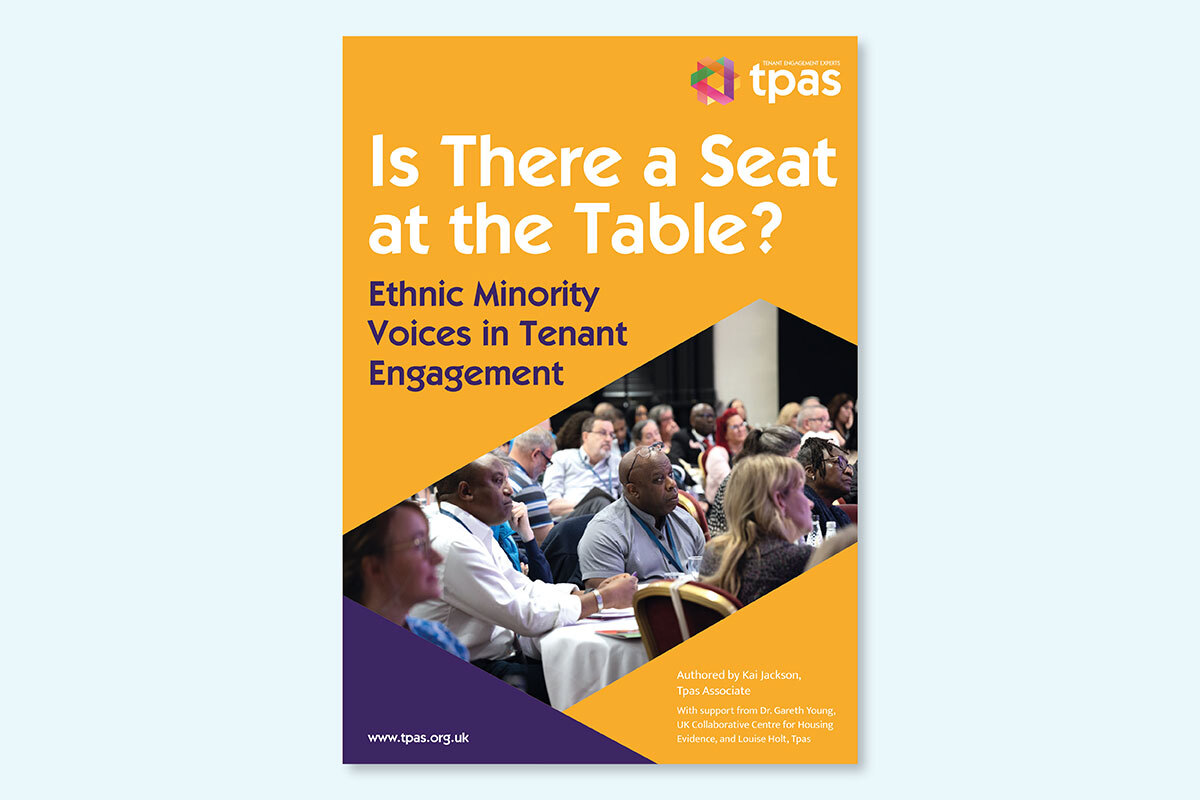Ethnic minority tenants ‘significantly underrepresented’ in engagement, Tpas research shows
Ethnic minority tenants are significantly underrepresented in engagement activities and face ongoing barriers to participation, new research has revealed.

Tenant engagement body Tpas has highlighted the lack of representation of ethnic minority tenants and outlined action housing providers can take to improve visibility and participation.
The report, titled Is There a Seat at the Table? Ethnic Minority Voices in Tenant Engagement, was authored by Kai Jackson, a Tpas associate and chair of the scrutiny panel at Black Country Housing Group.
She told Inside Housing that rebuilding trust was a major issue. “To build that trust back, you have to understand why that trust was lost in the first place,” she said.
“The research shows the root cause analysis leading up to where we are now.
“Now we need to show tenants that we do want to change. We do want to actually make equality, diversity and inclusion not just an add-on or a tick box.”
Ms Jackson worked with Dr Gareth Young, knowledge exchange and impact fellow at the UK Collaborative Centre for Housing Evidence, and Louise Holt, head of membership services at Tpas, on the research.
The report analysed 25 registered providers’ websites to assess the representation of ethnic minorities in engagement activities, finding that 64% had no images of tenant engagement or ethnic minority tenants.
Ms Jackson carried out two surveys, one for tenants and one for staff, with responses from 178 tenants and 175 staff.
She also conducted three 90-minute focus group sessions to explore the experiences of tenants and staff.
Key findings included the need to “develop a comprehensive marketing and communication strategy” to inform tenants about engagement opportunities, with a focus on prioritising accessibility through multilingual and culturally sensitive materials.
Ms Jackson described some of the conversations she had had with tenants during the research as an “eye-opener”, with 93.6% feeling their landlord could do more to attract tenants from ethnic minority groups to
participate in tenant-influencing structures.
One anonymous tenant said that they had been involved in engagement activities in the past but thought the landlord failed to listen to tenants’ suggestions. “I, therefore, felt it was a waste of my time," they said.
Ms Jackson hopes the research will “start those conversations around diversity”.
The research also called on social landlords to “foster genuine, action-oriented engagement to address concerns about being ignored or disrespected”.
Crucially, landlords should “demonstrate accountability by visibly acting on tenant feedback”.
The report said housing providers should invest in staff training around cultural competence and use “robust” data collection to track tenant demographics and engagement challenges.
Ms Jackson flagged up the use of the TABLE framework to guide tenant engagement. It stands for: tailored training; actively engaging communities; bringing everyone into the conversation; listening to voices and ethnic minorities.
She noted that this was a framework landlords could use if they had trouble evidencing their diversity and inclusivity as part of the Regulator of Social Housing’s consumer standards.
Ms Holt said: “Understanding and amplifying the lived experiences of ethnic minority tenants in social housing is essential for shaping policies and strategies that truly reflect the diversity of our communities.
“Yet, as we at Tpas have observed, significant barriers still prevent many ethnic minority tenants from fully participating in formal engagement activities.”
Mr Young said: “During the course of this project, we have heard from lots of people in social housing that has really highlighted how people are feeling, and how those from minoritised ethnic communities are still feeling like they do not have a voice in engagement processes.”
In September last year, Tpas updated its standards for landlords, with the aim of “setting a higher bar for tenant involvement and empowerment” in the social housing sector.
Sign up for our daily newsletter
Already have an account? Click here to manage your newsletters











